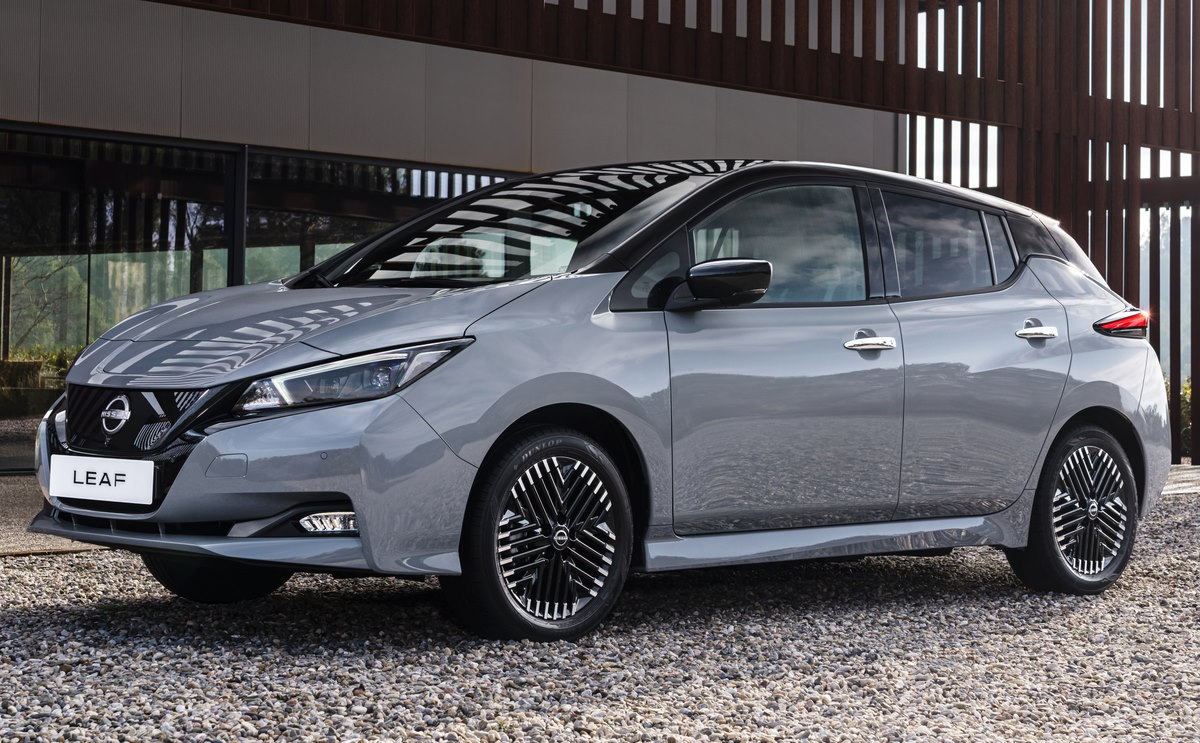Almost four years after it was first introduced in our market, the facelift version of the second-generation Nissan Leaf EV is finally coming to Malaysia. Not only that, the 2023 iteration is priced much lower as well.
As this is a facelift release, the 2023 Leaf still has the same body shape as its 2019 counterpart. There are still some aesthetic changes but they were rather subtle and you have to pay close attention to spot them.
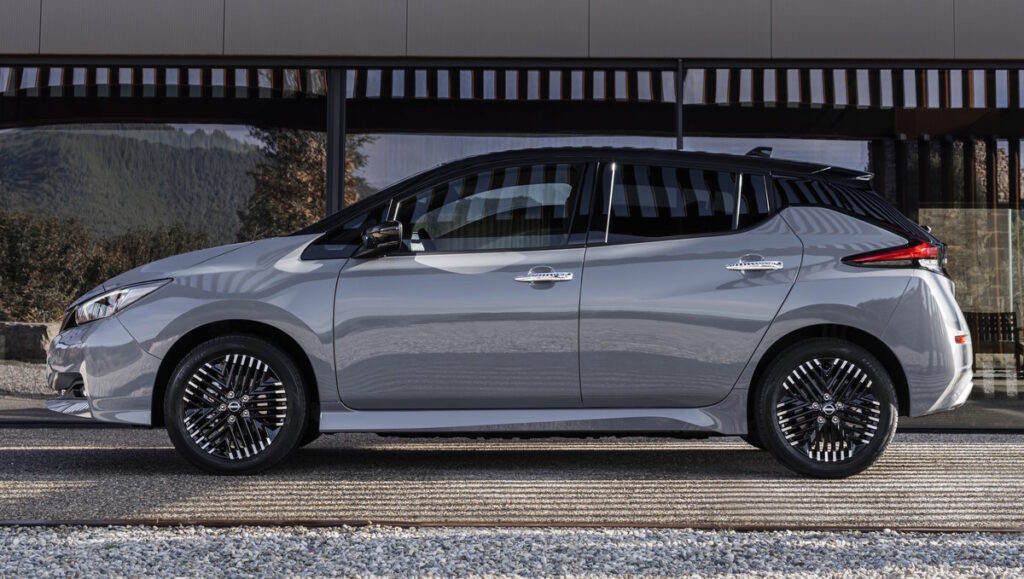
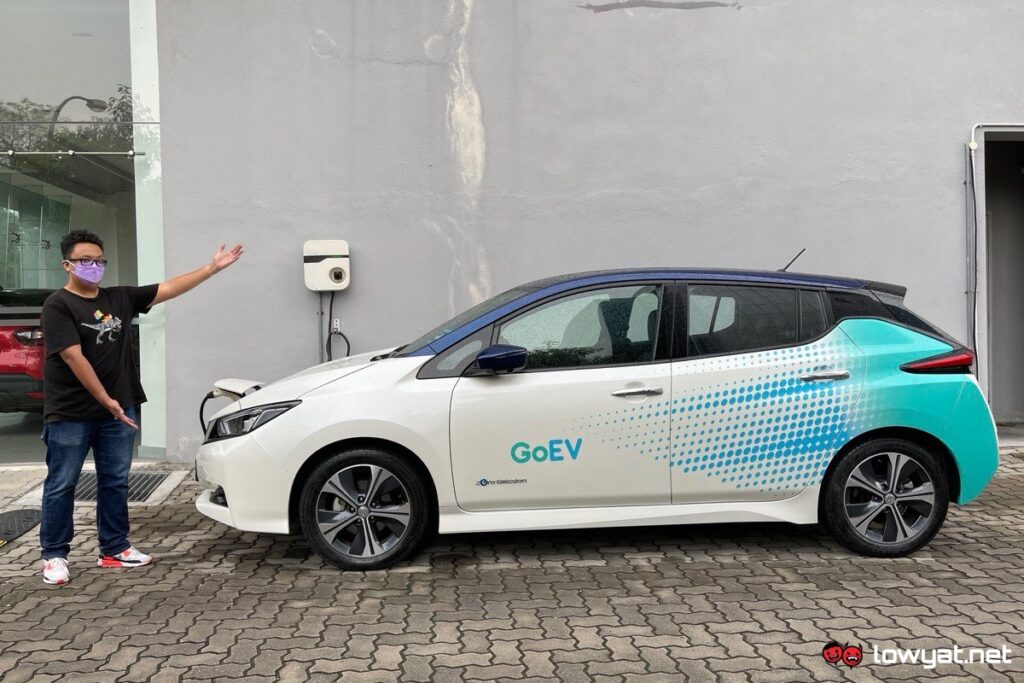
Among the changes are an all-black aero grille, grey-accent diffuser, and the refreshed Nissan logo as well as a slightly tweaked lower bumper and rear spoiler. If you looking for the easiest way to identify the 2023 model, that would be its 17-inch wheels which feature a more aggressive design that looked so different from the “Turbine” design that was featured on the 2019 model.
Inside, the changes can be identified more easily though. For one, there is the new NissanConnect infotainment system with a bigger 8-inch touchscreen alongside the support for both Android Auto and Apple CarPlay albeit limited to wired USB Type-A connection.
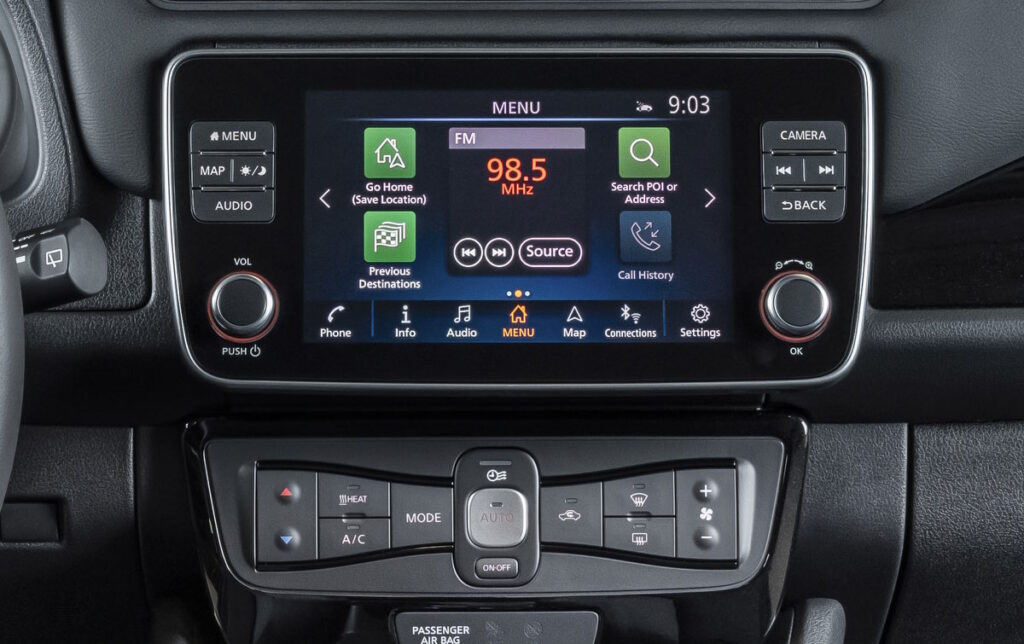
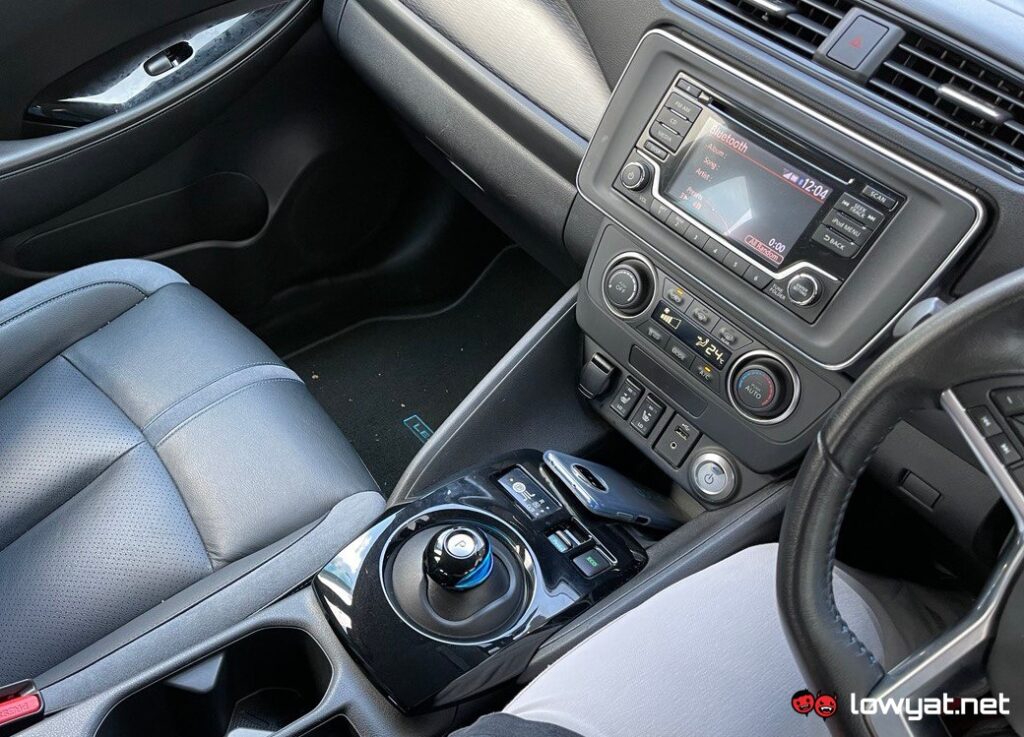
The 2023 iteration has also been provided with a rear-view mirror that has a built-in LCD display that users can activate to show the live video feed from the Leaf’s rear camera. While the Malaysian variant still does not come with adaptive cruise control, the facelift model still surpassed its 2019 counterpart by having Intelligent Lane Intervention and Lane Departure Warning.
Other safety features that Nissan has retained for the facelift model include six SRS airbags, Intelligent Forward Collision Warning with Forward Emergency brake, the 360-degree Around View Monitor with Moving Object Detection, Intelligent Driver Alertness, Intelligent Ride Control, and Intelligent Trace Control.
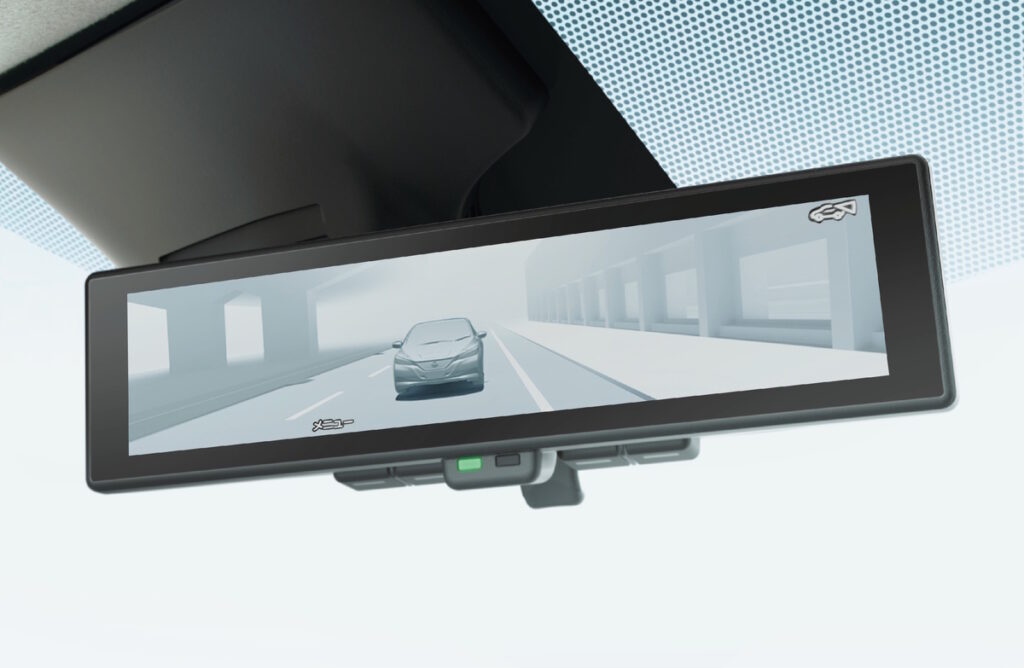
Powering the EV is a 40kWh lithium-ion battery which allows the 2023 Leaf to reach a maximum range of 311 km according to the NEDC standards. As for charging time, it takes around seven hours to fully charge the battery via the Leaf’s onboard 6.6kW AC charger which now features a more up-to-date Type 2 connector.
The charging time can be reduced to just one hour through a 50kW DC fast charger (DCFC). However, Nissan has decided to continue using the CHAdeMO connector for DC fast charging on the Malaysian unit though.
This made us feel slightly baffled given that local EV Charge Point Operators generally seemed to prefer the CCS2 connector for their DCFCs. Furthermore, all of the newer EVs that officially entered Malaysia after Leaf have opted for the CCS2 connector too.
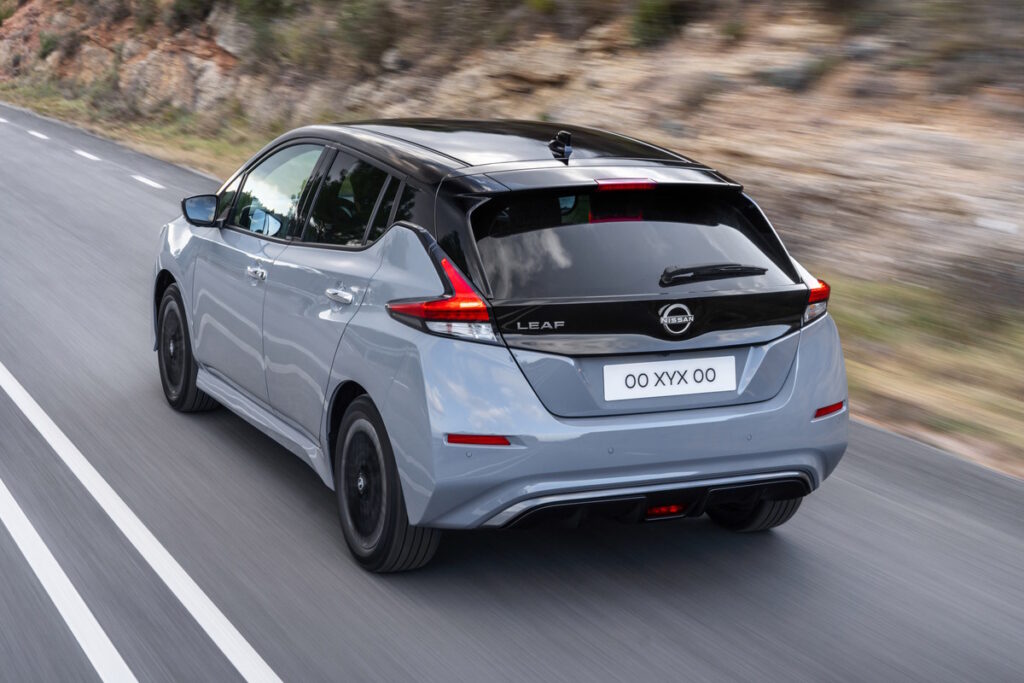
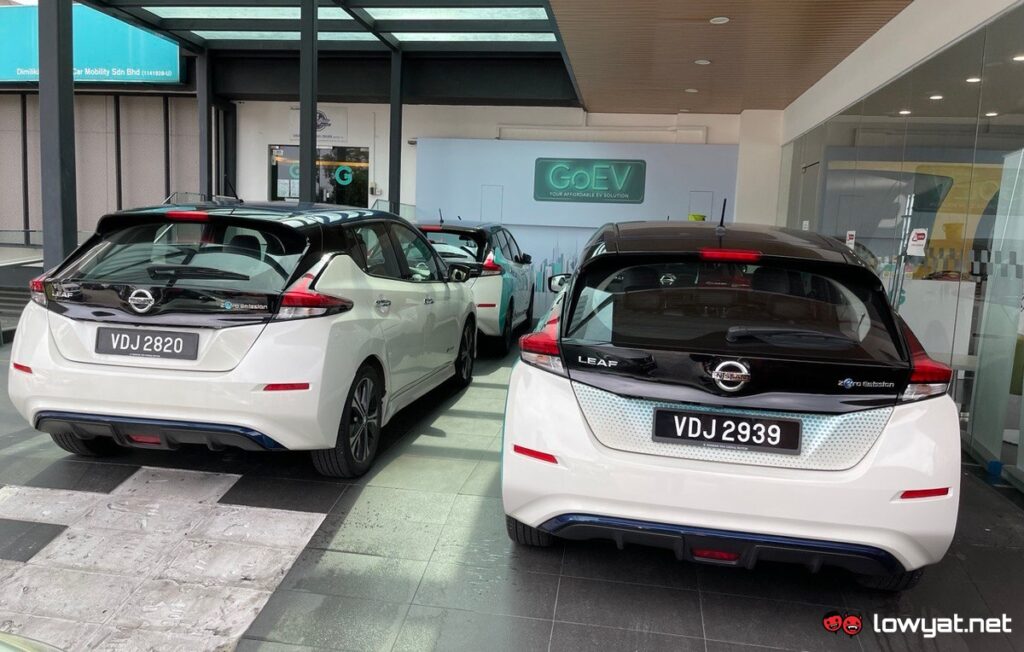
When it comes to pricing, the 2023 Leaf facelift can be obtained in Malaysia starting this Friday, 10 March onwards for RM168,888 on-the-road without insurance. As a comparison, the existing 2019 Leaf is currently priced at RM175,800.
Just like its predecessor, Nissan Malaysia continues to provide a 3-year / 100,000km warranty and a separate 8-year / 160,000km warranty for the 2023 Leaf. Customers can choose to get their hands on the EV in Stealth Grey, Vivid Blue, Midnight Black, Pure White Pearl, Burgundy, Opera Mauve, and Akatsuki Sunrise Copper although all Malaysian units do feature a Super Black roof regardless of the colour option that they picked up.
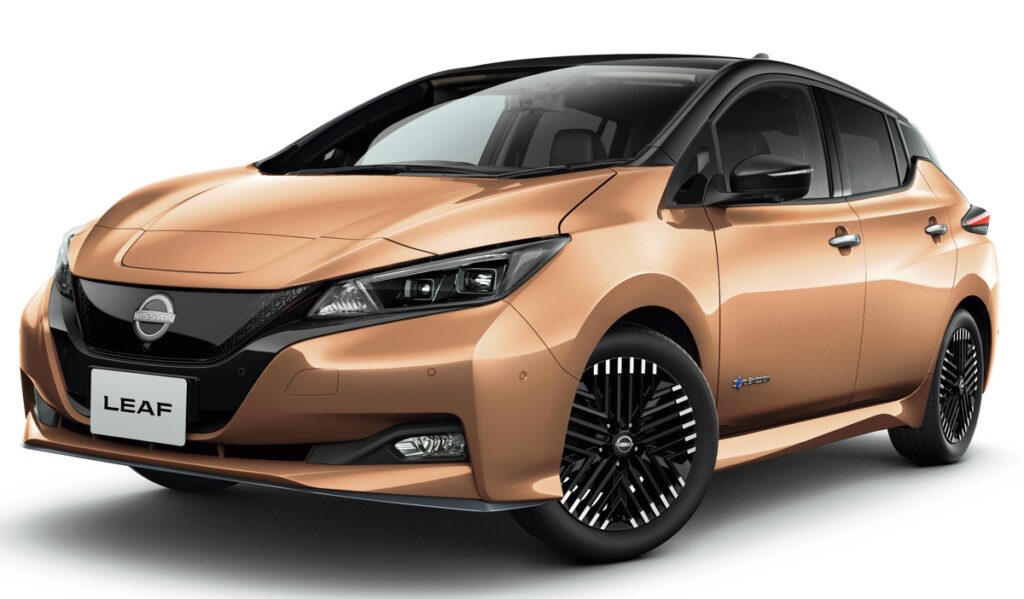
Based on the specs sheet alone, we reckoned that the Leaf lies somewhere in the middle of the field. That being said, the model is starting to show its age though especially given that the genesis of the 2023 facelift model can be traced way back to 2017 – the year when the second-generation Leaf was first introduced to the market.
(Source: PaulTan, SoyaCincau.)
Follow us on Instagram, Facebook, Twitter or Telegram for more updates and breaking news.


